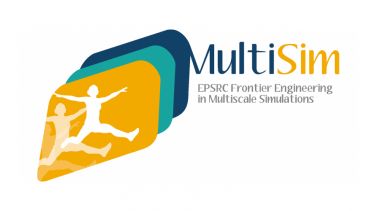MultiSim’s Director, Claudia Mazzà collaborated with dancer and choreographer Freddie Garland, Tenfoot Dance Company, in her continuing project ‘Women’s Movement 100: Angels of the North’ to create a filmed performance about women’s suffrage, emancipation and health for 2020's Festival of the Mind.
One-hundred women from local communities and further afield took part in this project, which gives artistic form to the patterns and waves of the women’s movement over the last century, as explored in Department of History Professor, Julie Gottlieb’s research. Women’s Movement 100 refers to both political and physical movement.
The biomechanics of the female physical movement is an important component of MultiSim’s research. Freddie and some of her dancers started to explore their choreography in the motion capture laboratory with MultiSim and Mobilise-D researchers: Erica Montefiori, Kirsty Scott and Tecla Bonci.
In the podcast, Freddie explores the process of collaborating with academics in creating the piece, combining women’s suffrage, dance and now biomechanics.
Julie Gottlieb, Professor of Modern History at the University of Sheffield talks about the feminisation of politics and the politicisation of women in modern Britain and her research looking at the consequences of the vote for women, ‘20s and ‘30s foreign policy.
Claudia describes her journey through art and human rights, human movement and engineering solutions, leading to her research in modelling how people move and the consequences of limitations in movement. Her interest in developing positive role models of women in science and engineering. MultiSim’s research models for quantifying loads through movement, modified to reduce the risk of fracture in osteoporosis, which predominantly affects woman. The use of motion capture in this research. Her interest in performing arts and the opportunity of using them to disseminate research and communicate with a wider audience.
In the podcast we also hear from Emily Lawless and Jamie Lee Jenkins, two Historical Research Assistants and Laura Alston who reflects on the REF (Research Excellence Framework) impact of this collaboration.
The podcast provides an excellent insight into the development of the film, which brings together the processes in making the piece, its importance to the participants and of the performance itself.
Data captured from some of the dancers involved in the Women’s Movement 100 can be seen as delicate, abstracted moving dots and tracing lines superimposed over portions of the film, reflecting the movements used by the dancers in the film.



